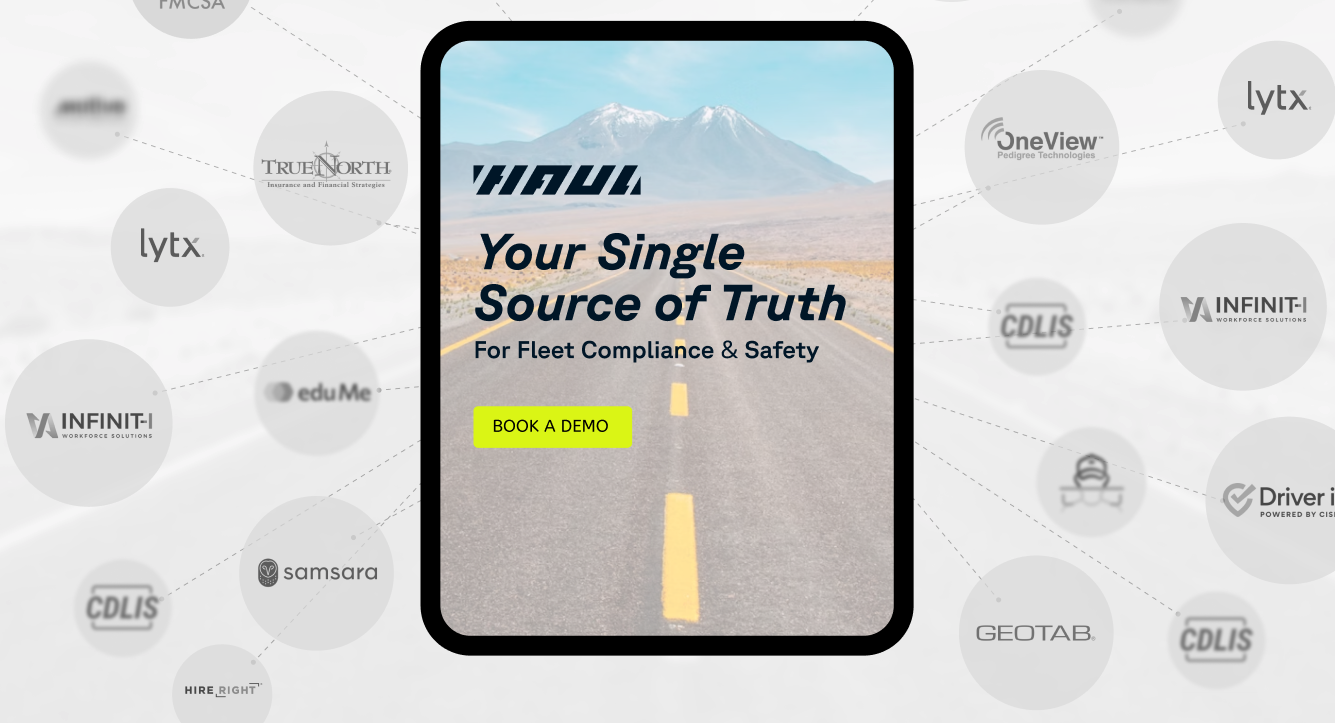Understanding Virginia Tow License Requirements

Navigating the complexities of fleet management, especially when it comes to compliance and safety regulations, can often feel like a maze. For fleet managers, logistics directors, and risk management officers, understanding the specific requirements for operating tow trucks in Virginia is crucial. With a somewhat casual tone, let's delve into the intricate world of Virginia tow license requirements and shed light on what you need to know to ensure compliance and operational efficiency.
Virginia Towing Laws: An Overview

by Maksim Tarasov (https://unsplash.com/@awsmsky)
Virginia's towing laws are designed to ensure the safety and efficiency of towing operations throughout the state. These regulations apply to both private and commercial towing services, mandating specific compliance requirements that must be adhered to. Understanding these laws isn't just about staying compliant—it's about fostering a safer and more transparent towing operation.
Who Needs a Tow License in Virginia?
In Virginia, any individual or business that intends to operate a tow truck must obtain a tow license. This requirement is part of the state's effort to regulate towing services and ensure that they meet certain safety and operational standards. The license applies to a variety of towing operations, including:
- Recovery of disabled vehicles
- Transportation of vehicles for repair
- Removal of illegally parked vehicles
Whether you are managing a fleet of tow trucks or just a single vehicle, securing a Virginia tow license is non-negotiable.
The Process of Obtaining a Tow License

by Roberto Ourgant (https://unsplash.com/@rourgant)
Obtaining a tow license in Virginia involves several steps, each designed to ensure that towing services operate safely and efficiently.
Step 1: Application Submission
The first step in obtaining a Virginia tow license is to submit an application through the Virginia Department of Motor Vehicles (DMV). The application requires detailed information about the towing business, including:
- Business name and contact information
- Description of services offered
- Details of the towing vehicles and equipment
Step 2: Compliance with Safety Standards
Safety is paramount in the towing industry, and Virginia's laws reflect this priority. To obtain a tow license, applicants must demonstrate compliance with safety standards, which include:
- Regular vehicle inspections
- Adequate insurance coverage
- Properly trained personnel
Step 3: Background Checks
Virginia requires background checks for all individuals involved in towing operations. This step helps ensure that only qualified and trustworthy personnel are responsible for towing services.
Step 4: Issuance of License
Once the application has been reviewed and all requirements met, the DMV will issue a tow license. This license must be displayed in the towing vehicle and is subject to renewal as dictated by state regulations.

Ensuring Compliance: A Continuous Process

by Francois Olwage (https://unsplash.com/@francoisolwage)
Compliance doesn't stop once you have your tow license in hand. Maintaining compliance with Virginia's towing laws is an ongoing process that requires diligence and attention to detail.
Regular Vehicle Inspections
To keep your fleet compliant, regular vehicle inspections are essential. These inspections ensure that all towing equipment is in good working order and meets state safety standards.
Continuous Training for Personnel
Your team's training is crucial to compliance. Continuous training helps ensure that all personnel are up-to-date with the latest towing techniques and safety protocols.
Utilizing Technology for Compliance
Leveraging technology can streamline compliance efforts. From using fleet management software for real-time insights to deploying GPS tracking for transparency, technology plays a vital role in maintaining compliance.

The Importance of Transparency and Partnership
In the towing industry, transparency and partnership go hand in hand. By fostering strong relationships with clients and regulators, towing companies can ensure that they operate within the bounds of the law while delivering exceptional service.
Building Trust with Clients
Transparency builds trust with clients, ensuring that they have confidence in your towing services. Clear communication about pricing, services, and timelines helps establish a positive reputation.
Collaborating with Regulators
A strong partnership with state regulators can aid in navigating complex compliance requirements. By maintaining open lines of communication, towing companies can stay informed about changes in regulations and proactively address compliance issues.
Conclusion: Navigating Virginia Tow License Requirements with Confidence
Understanding and adhering to Virginia's tow license requirements is essential for anyone involved in the towing industry. By following the steps outlined in this guide and maintaining a focus on compliance, safety, and transparency, you can navigate these regulations with confidence. Remember, the key to successful fleet management lies in staying informed, leveraging technology, and fostering strong partnerships with both clients and regulators. With these strategies in place, you can ensure that your towing operations are not only compliant but also efficient and trustworthy.
By taking the time to understand these requirements, you demonstrate your commitment to safety and excellence, embodying the values that make the American towing industry a trusted service provider. Stay informed, stay compliant, and continue to drive your towing operations toward success.

